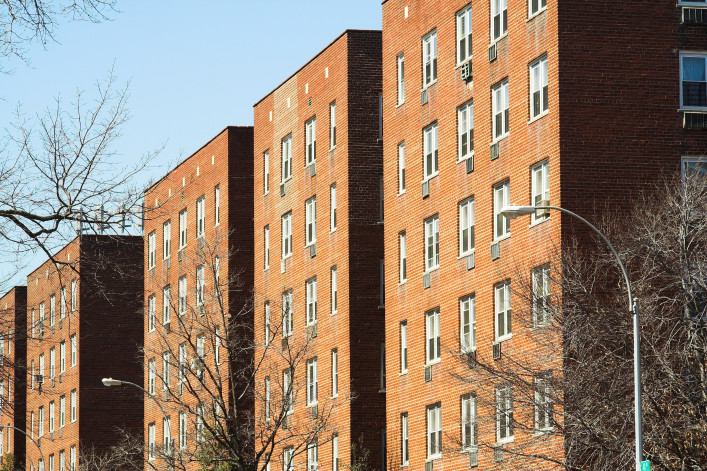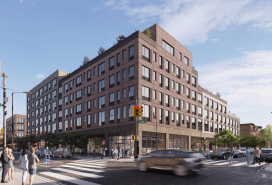The 7 most likely reasons you'll get rejected by a co-op board

iStock
Boards are omnipotent—almost. They can turn you down for just about any reason as long as it doesn’t violate the city’s Human Rights Law, which prohibits rejections for reason of race, creed, color, national origin, sex, age, disability, sexual orientation, marital status, citizenship, occupation or on the basis of how many children you have.
Anything else is fair game, from how you part your hair to whether you have any at all. And—for now, anyway—they have absolutely no obligation to tell you why they’ve rejected you.
That's where we come in. Below, the seven most likely reasons a co-op board may hit the reject button.
1. You don’t have as much money as they think you should have (or you’re not being upfront about how much you do have)
Finances are far and away the number one reason buyers are rejected by co-ops. Co-ops have rules about what they consider “sufficient reserve” once you’ve made you purchase; at the extreme, this could be as much as one to three times the purchase price leftover in liquid assets.
“Banks are still perhaps a little less demanding when it comes to requiring assets left over after purchase than are co-op boards," says real estate agent Sharon McIntosh of the McIntosh Company. "Prospective buyers should be prepared to put a year’s maintenance in escrow.”
A good broker can help you avoid a turn-down for financial reasons by helping you present your financial picture in the most strategic light. Sometimes, though, “buyers misrepresent their net worth or personal situation and the agent doesn’t verify it,” says real estate agent Victoria Vinokur of Halstead. Then, when the application is submitted, a disconnect shows up, quickly followed by a rejection.
Real estate attorney Adam Stone of Regosin, Edwards, Stone & Feder recalls a client who was hoping to sell his apartment to a Chinese national.
“The would-be buyer only provided partial financial information on the application, so her package didn’t show enough assets to pass board scrutiny. In reality she had much higher assets than disclosed but did not want to provide details about them. After the board turned her down, she asked my clients to allow her to revise her application and resubmit. My clients declined.”
Real estate agent Tracie Hamersley of Douglas Elliman gives the example of a well-qualified purchaser who put down 25 percent and had a half-million dollars in liquid assets. The buyer was turned down--because that board requires assets of one-and-a-half times the purchasing price and the buyer was short $250,000.
Other financial red flags for boards would be any indications that your income fluctuates wildly or that you’ve had some recent and unexplained influxes of cash, which could signal that money from a parent or other friendly source is being used to prop up your balance sheet for appearance's sake.
In addition, cautions co-op and condo attorney Dean M. Roberts of Norris McLaughlin & Marcus (fyi, a Brick sponsor): "Bad credit, heavy debt loads or other financial blemishes are the kiss of death for most co-ops."
2. The board isn’t sure that the apartment will be your primary residence
Many co-ops require that you use your apartment as your primary residence. Even if that's what you intend, your circumstances may paint a different picture and raise suspicions.
Stone tells of a client who was at first turned down because the board just didn’t believe that she was going to use the apartment as her primary residence. “She lived and worked in Florida but she was going to be transferred to New York after the closing," he says. "We were able to get the board members to change their minds by having her pay two year’s worth of maintenance fees into escrow as a guarantee. The board's logic--which we didn't think made much sense--was that 'it's one thing to say you are moving to NY, it's another to put your money behind it.' I think it was a way for board members to cover themselves in case things went wrong. They could answer potential critics by saying, 'She was willing to put all of this money in escrow to assure us!'"
Primary occupancy is also a primary concern when buying an apartment in the form of a trust (if the co-op allows that in the first place, that is). "Care must be taken to ensure who the occupants of the apartment will be," explains co-op and condo attorney Robert Braverman of Braverman Greenspun. “Many co-op boards will not even consider this type of sale.”
3. Your landlord-tenant history scares them
Prior housing problems can haunt you. “Being involved in landlord-tenant proceedings in the past or having a spotty residency history, in other words, showing a large number of addresses in a relatively short period of time” can deal a death blow to your application, says Roberts.
4. The board package was “sloppy"
McIntosh is convinced that a sloppy, careless board package is actually the number one reason for rejection. “Boards sometimes are reluctant to get involved in a back-and-forth once they’ve received the package," says the real estate broker. 'If there’s something seriously problematic, they’ve very likely to to just turn down the applicant.“
Every question has to be answered ….and the answers have to be easy to find and clear before a package is submitted, says McIntosh. "The easier it is for the board to understand the numbers, the better for the applicant. Boards are made up of volunteers and going over a package takes time. Not having things in good order shows no respect for their work," she says.
A good broker will help you accentuate your strengths and put together a neat-looking, truthful and thorough package. (In the meantime, here are some tips.)
5. You will be an annoying neighbor
You are deemed too potentially loud (you're a rock music promoter, you play the drums, sing opera, own a notoriously yappy breed of dog), too litigious (you're an attorney or you have a record of litigious behavior), too famous (raising the possibility of wild parties, paparazzi, entitlement issues, and crowds of fans), or raise any number of other lifestyle concerns that could potentially impede on the finances of your neighbors or quiet enjoyment of their apartments.
6. Your interview was a bust
No jokes about the (questionable) decor of the lobby. You need the board to like you and want to let you into the club. “Sometimes at a board interview, buyers volunteer information that doesn’t present them in a good light, or they mention a renovation project that has not been approved or has only a slight chance of being approved, ” warns Vinokur.
Try to keep things cordial and professional (and don't get too chatty) and when in doubt, practice good answers to these questions.
7. The internal politics the board—or personal interest of a board member—work against you
There’s nothing you can do about this last one. Real estate agent Ari Harkov of Halstead Property offers an example. “The first time I heard of a client being turned down (and it happens rarely) it was in a four-unit building in Cobble Hill. One of the unit owners had a personal vendetta against another so after a miserable co-op process the buyer was turned down even though he was offering $795.000 in cash and had double the purchase price in liquid assets left over," he says.
You can also run into a situation where a board member wants to sell an apartment similar to the one you want, but wants to get a higher price—14B wants to sell and doesn’t like the price 15B is willing to take. In this situation, says Vinokur, “some wise boards will give the buyer an option to increase the price."
In another variation on this theme, a board member has their own eye on the property you're buying.
***This post was updated in June 2016.***



























